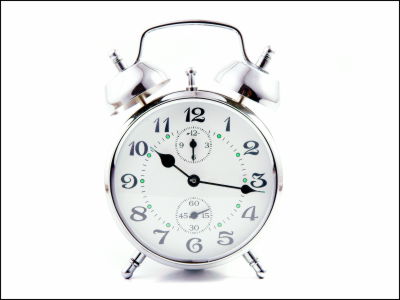It may be contributing to the obesity of modern people that the night has become brighter

Modern people are considered to spend most of the time in the bright environment with electricity until just before bedtime even after sunset, some people who are in the habit of sleeping with the light of the room sleeping, even if the night curtain is closed, There may be people who are sleeping in a light bright room because of the light, but it became clear that there is a possibility that such modern "brightness of the night" may contribute to obesity .
In experiments using a mouse, even though there is no change in the amount of eating or momentum, the result that the mouse spending in the bright environment at night is thickened.
Details are as below.Too Much Light At Night At Night May Lead To Obesity, Study Finds
Ohio State UniversityScientists using mice showed experimental results suggesting that lighting in the night that should be darker would lead to obesity. Even if there is no difference in the amount of eating and the amount of activity, the mouse placed in the environment exposed to twilight at night also seems to have had a significantly higher weight gain rate compared to the mouse in the daytime brightly dark at night .
150luxMice placed in a bright environment of 16 hours · 5 lux twilight for 8 hours in a light environment of 15 hours compared with the mice spent 16 hours at 150 lux and 8 hours in darkness from the first week of the experiment At the end of the 8th week, the mice placed in a bright environment at night had an average weight increase of 12 grams, compared with 8 grams of the mice in the daytime bright and dark at night , And it is said that 50% increase was also large. Mice placed in a bright environment at night also had high epididymal fat levels and had impaired glucose tolerance (IGT) And it was said that it was showing the state which can be said to be the preliminary stage of diabetes.
At Ohio State UniversityBiological psychologyA paper by Doctoral student graduate student Laura Fonken who major inProceedings of the National Academy of SciencesIt will be published in the magazine.
In the experiment, the body weight of the mouse was measured once a week, the food intake of each mouse was measured every day, and the activity level was also measured by infrared beam. Although there was no difference in the amount of food and the amount of activity in the two groups, it was said that a change in eating time was seen in the mouse placed in a bright environment at night, which is a significant weight gain compared with the control group It is considered to be connected.
"Because of the light of the night, it seems that mice do not want to properly metabolize food, it seems to want to eat things at the time not the original meal time," he is a coauthor of the paper and the neuroscience of Ohio State University Dr. Randy Nelson, professor of psychology, says.
Since the mouse is a nocturnal nature, most meals are supposed to be ingested at night (8 hours spent in the dark or twilight in this experiment), but mice placed in a dark environment at night are in the middle of the day (150 lux 16 hours) was 36% of the whole meal, while mice in a lightly lit environment at night had taken 55% of the amount eaten per day during the day.
The researchers who saw that the time to eat is heavily involved in weight gain subsequently performed experiments in which the mouse was able to access the food only in the dark environment at night and in the lighting environment at night as well It was. In this experiment, when we ingested food only during the time when the mouse was normally active, it was said that mice placed in a bright environment at night did not change their weight gain as compared with the target group.
Stress hormone linked to metabolic changesCorticosteroneIt is said that there was no significant difference in the two groups at the level of the mice that are exposed to light at nightCircadian rhythmRelated hormones related to metabolismMelatoninIt is thought that this is affecting weight gain, because the secretion of the body weight is disturbed. Also, the light of the night controls the timing at which the animal ingests food or becomes activeClock geneIt is likely to disturb the expression of.
Although it is a conclusion obtained from the experiment result using the mouse to the last, "The light of the night may be one of the environmental factors which people are unexpectedly playing in increasing social obesity," Nelson The professor says.
Related Posts:
in Science, Posted by darkhorse_log







